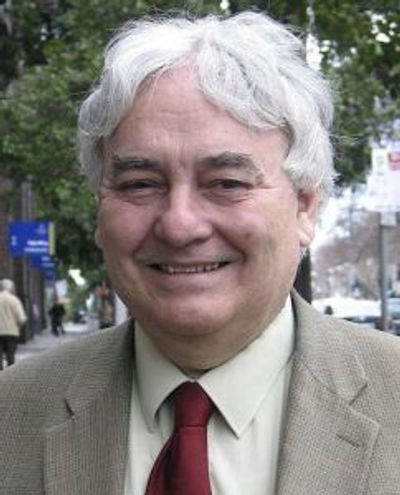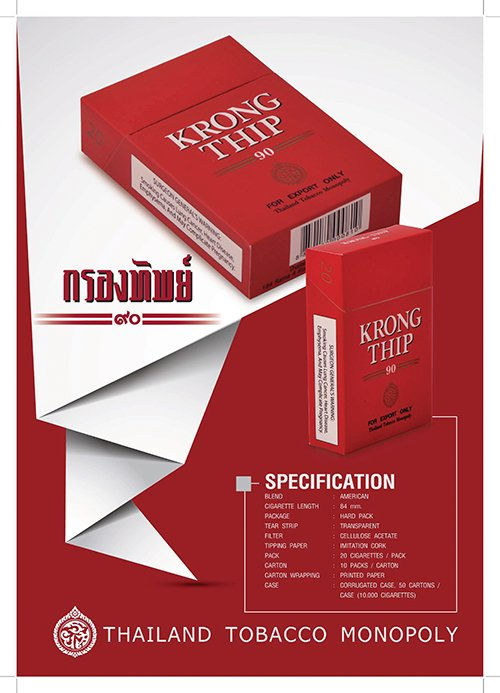Points Interview: “The Monopoly Option: Obsolescent or a ‘Best Buy’ in Alcohol and
- Points Editors
- Jan 29, 2021
- 7 min read
Updated: Aug 13, 2023
Editor’s Note: Points continues its series of interviews with authors from the latest issue of ADHS’s journal Social History of Alcohol and Drugs (vol. 34, no. 2; Fall 2020), published by the University of Chicago Press. Today we feature Dr. Robin Room, Distinguished Professor at the Centre for Alcohol Policy Research at La Trobe University (Melbourne, Australia). You can see his article here. Contact the University of Chicago Press to subscribe to the journal or request access to this article, or any other article from SHAD’s history.
Tell readers a little bit about yourself

I’m an Australian, now back in Australia for 15 years, but I spent more than 30 years in the US and 7 years each in Canada and Sweden along the way. I still work—primarily at the Centre for Alcohol Policy Research at La Trobe University in Melbourne. But I also have a fractional appointment at the Centre for Social Research on Alcohol and Drugs at Stockholm University.
I’m a sociologist by trade, who has mostly worked on alcohol, drugs, and gambling, using both quantitative data (population surveys, and social and health agency records and statistics) and qualitative data (documents, etc.) I’ve always been interested in history, although I’ve had very little formal historical training. My long-ago dissertation was about governing images of alcohol and drug problems. Among other things, this involved looking at the rise of the concept of alcoholism as a way that the US “alcoholism movement” could talk about alcohol problems in American society in the wake of two generations of middle-class youth rebellions against temperance and prohibition.
Given my background and trajectory, I have always been interested in cross-cultural comparisons, and I was a member of the founding generation of the Kettil Bruun Society for Social and Epidemiological Research on Alcohol, the main international society in its field…. You can find a vita and quite a lot of my stuff at www.robinroom.net
What got you interested in drugs (and their history)?
As a graduate student at UC Berkeley, I switched from English literature to sociology, and I had to take a one-year course in survey research methods (survey research was going to turn sociology into a “Real Science”!). On the strength of that course, I got a two-month summer job on the California Drinking Practices Study, which had been funded to look at drinking practices in the general population—sociologists had convinced the US government of the importance of looking beyond alcoholics to understand problems with alcohol in the US. And I stayed on in the field after that.
Alcohol studies is an interesting area, because drinking and alcohol reaches into so many different fields—biology, tourism research, criminology, literary studies, international law, traffic engineering, history—you name it, there’s an alcohol aspect to it, which can be interesting to study. But alcohol is pretty peripheral to any particular academic discipline, and, for that matter, any profession, so the leaders in the discipline or profession won’t get too upset about an outsider messing around in “their” territory.
As for drugs, I was (after all) living in Berkeley in the 1960s–1980s, so it was natural to become interested in drugs, too, and to ignore the boundaries in the literature and look at them comparatively. I actually got recruited into drug research by Jerry Jaffe, Nixon’s “drug czar”—he heard me talk at a meeting in London about drinking patterns in the population and decided that he wanted some of that in a big national drug study his office was funding.
One could hardly ignore the dramatic history (part of it happening on the streets around me) if you were going to understand drugs in America. And what I learned about it in those days pushed me back into looking more carefully at alcohol histories, too.
Explain your journal article in a way that your bartender won’t find boring.

A store of the Liquor Control Board of Ontario on Yonge St. in Toronto in 2014. In its earlier, more restrictive days, the LCBO was a pioneer in “IBM card” punched-card technology for its system of surveillance of individual liquor buyers, see: Scott Thompson & Gary Genowski, Punched Drunk: Alcohol, Surveillance and the LCBO 1927-1975. Image from Wikimedia.
Governments have always had conflicting motives about inherently attractive substances that carry risks of harm—like tobacco, alcohol, and (other) drugs. On the one hand, the substances’ attractiveness means they can be sold for more than it costs to grow, make, process, and sell them, so governments have long seen that they can take some of that profit in “excise taxes” or in other ways.
On the other hand, the government’s interest is also served by a strong and healthy citizenry that isn’t injuring each other, and, one way or another, it turns out that tobacco, alcohol and many drugs are quite risky substances. So, governments— if they allow them to be legal at all—have set up specific controls for the markets in these substances, such as liquor licensing for alcohol and prescription systems for many drugs.
One way that governments served either—or both—of these opposing motives was by monopolising the market, totally or in part. A government monopoly could set prices to maximise profit (revenue), or it could limit availability to reduce the harm. There’s a strong history over the last few centuries of governments monopolising aspects of the market for tobacco, alcohol, and opiates—the three substances considered in my article.
Initially, goverments mainly emphasised profits (with the monopoly franchise often sold to the highest bidder as a “tax farm”), but, by the middle of the nineteenth century, the other side—the state’s responsibility for public health and welfare—started to come to the fore. This was pushed along by social movement like Temperance, which included some strands interested in controlling or prohibiting tobacco and opium in addition to alcohol. The public health/public order side of the state’s interest became particularly prominent for alcohol in the late 1800s, in part, as an alternative to flat-out prohibition.
So, there’s a lot of history in many places about what happens when governments monopolise all or part of the market in alcohol, tobacco, or opium. We happen to be living in an era when neoliberalism has become dominant, and the idea of the state monopolising and running a market is very much out of favour. Since I first got interested in the history of government monopolies of alcohol in Berkeley, my initial research in the area was about state-level alcohol monopolies in the US. After working in other countries, I have now looked at alcohol monopolies elsewhere, too.

Wrapper for a packet of opium produced by the opium monopoly and sold in licensed opium shops in Singapore in 1910. Each packet contained enough opium for about six smokes; source: The Opium Monopoly by Ellen N. La Monte (1920).
For tobacco and opium monopolies, I’ve had to rely on other scholars’ work—historians, mostly, for the opium monopolies—and there’s certainly much to learn from comparative studies across the history of monopolies in the three substances.
This research also has practical utility, in my view. A monopoly centered in parts of the government concerned with health or welfare can act in those interests—and there’s plenty of favourable evidence that such government control of these substances is a cost-effective way to limit their harm.
In the neoliberal era, though, it’s very hard to win a policy argument in favour of a government monopoly, and many monopolies have been weakened or dismantled. But, ironically, our best evidence about the relevance of the monopoly option for public health interests comes from this era—by looking at what happens when monopolies are privatised.
Recently, another substance—cannabis—has become more accepted as a routine “high,” and the United States, Canada, and other places have been devising options for establishing and controlling a legal market. And that, along with policy discussions about privatising alcohol monopolies, are the primary contexts in which research like mine becomes relevant to the immediate policy debate.
Is this part of a larger project? What else are you working on?

Specifications for a cigarette brand produced by the Thai government’s tobacco monopoly; source: Tobacco Asia.
My “monopoly” stuff is a thread I’ve carried on with over the decades, mostly without anyone consciously funding me. This research has always arguably been relevant to the frame of what I was doing—particularly when I was working in Canada and Sweden—but it was not often specifically funded or asked for.
These days a lot of my research looks at how alcohol, tobacco, drugs, and gambling are dealt with internationally. They occupy astonishingly different positions with respect to international agreements and agencies and that reflects a lot of what I’m working on now.
Other research includes studying how the social worlds of heavy drinking operate, and how social pressures to “drink up” could be countered. I am also interested in studying how to define, measure, and reduce alcohol’s various potential harms to others. Serving as the editor-in-chief of Drug and Alcohol Review keeps me up to date and busy—particularly in COVID time since DAR’s submission rate has gone up 50%.
Based on your research and experience, what do you see as the frontier or future of the field?
When I started as an alcohol researcher in the 1960s, we were in a very peripheral position academically. That’s a bit less so today, but it’s still true that it is hard to get serious money for social or historical research about alcohol. I think this has become a bit easier for scholars of drugs and tobacco. There’s only one intergovernmental agency with a serious interest in alcohol problems—the World Health Organization—and its alcohol program is starved for funds. On the other hand, there are dozens of staff in intergovernmental agencies for tobacco, and hundreds for drugs.
But I see alcohol issues becoming a bit more contested in the next decade. I don’t think AB Inbev, Heineken, and the rest will find it quite so easy, and I think it will be an interesting time to be conducting studies in the field, historical or otherwise.
What scholar, living or dead, would you most like to have dinner with?
It would be great to have dinner again with Kettil Bruun. Kettil was a Finnish sociologist with a strong interest in history and a commitment to research that had policy implications.
I made my way into international drug history reading The Gentlemen’s Club: International Control of Drugs and Alcohol, for which he was the leading author. He was also co-editor of another book in Swedish about the history of alcohol and the state in Sweden (in English, its title would be: “Swedish shots: a history of liquor, Bratt and bureaucracy”), and Nils Christie and Kettil wrote a pioneering book about the history of drug policies in the Nordic countries. Its title in English would be “Suitable Enemies.” Its main argument was that governments found drugs like opium and cocaine “suitable enemies,” while alcohol, tobacco and caffeine, despite their health harms, were unsuitable enemies of the state.
I think it was from watching Kettil and those he mentored in Finland and Sweden that I learned how important it was to intertwine the historical dimension into the study of social life, norms, and institutions.
